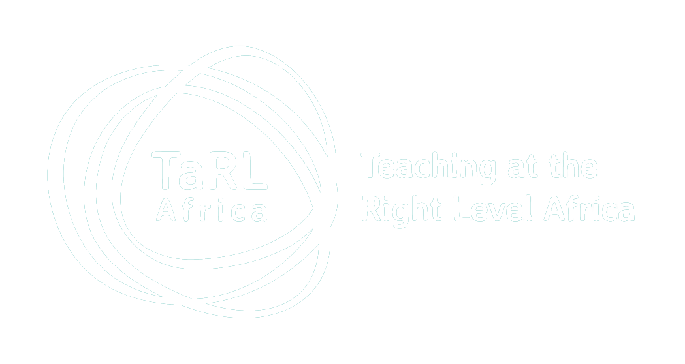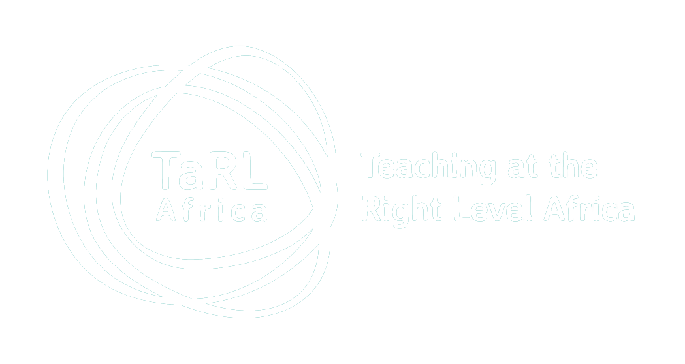FAQs
Pratham developed Teaching at the Right Level (TaRL) in the early 2000s to respond to the failures of the education system. At the classroom level, TaRL is a teaching approach that assesses children using a simple testing tool and then groups them according to their learning level rather than their age or grade. For a period of the day, children in middle-upper primary focus on foundational skills using an accelerated learning methodology. At the systems levels, the TaRL approach works with education policymakers to reorient the system toward effective learning. This work includes encouraging policymakers to dedicate time to teaching children basic skills; moving away from the age-grade structure to teaching learners based on their learning level; setting up mentoring systems to support teachers to deliver effectively; embedding approaches of continuous improvement; and setting up systems of measurement which lead to action. TaRL moves away from business-as-usual education toward ensuring that all children learn.
TaRL Africa is a non-profit organization registered and headquartered in Nairobi, Kenya, with teams in Côte d’Ivoire, Nigeria, and Zambia. TaRL Africa began as a joint venture by Pratham and J-PAL in 2019, with the goal of supporting governments and organizations across Africa to accelerate children’s foundational skill learning using the evidence-based TaRL approach. TaRL Africa supports governments and partners to design, pilot, and scale up TaRL in over ten countries in Africa. Together with partners, TaRL Africa reached over four million children with TaRL programming in 2022. TaRL Africa’s vision is that educational systems across Africa equip all children with basic reading and math skills. Toward this goal TaRL Africa:
- Supports the adoption of the TaRL approach by working directly with the government, with partners working through the government, and partners working in the community to establish proof points of sustainable and scaled TaRL programs. Our support to organizations and governments includes: Developing context-specific processes and practices: TaRL Africa team co-designs delivery models and supporting processes with government partners and relevant local stakeholders, so that they are built within existing government systems and grounded in local conditions, while also drawing on global evidence. Supporting (human, material, and financial) resource development. Providing strategic and learning support: We facilitate strategic decision-making by developing governance structures that ensure coordination and that empower governments to act.
- Innovates and learns to improve the effectiveness and efficiency of TaRL across multiple African contexts
- Supports a community of practice to establish a TaRL movement that can collectively address the learning crisis
The approach targets children in grades three and above or those eight years or older. Using simple one-on-one assessments, it groups children by current learning levels rather than by age and grade. The TaRL approach accelerates the learning of foundational skills through engaging, interactive, and playful level-appropriate activities, in most contexts focusing on the local language to instruct the learners
TaRL is not right for every context, organisation or government. Assess whether it might be appropriate for your circumstances, and then engage with the Pratham and J-PAL team on your ideas and plans.
When TaRL programme implementers decide to create new level-appropriate games or activities, they consider the core TaRL principles, as well as the specific reading and mathematics skills they are aiming to develop. When they try out these new games or activities, they reflect on the practical aspects (classroom space, time, whether each child is able to participate), and observe whether the game or activity helps children to grasp key concepts.
The TaRL testing tool assesses foundational reading and mathematics skills (number recognition and basic operations: addition, subtraction, multiplication and division). When creating assessment tools, TaRL implementers are guided by the following principles: Click here to see an example of how assessment tools are created.
operations: addition, subtraction, multiplication and division). When creating assessment tools, TaRL implementers are guided by the following principles: Click here to see an example of how assessment tools are created.
No, TaRL classes are not based on a curriculum. In many regular primary school classrooms, lessons are organized linearly, around terms or months, with content becoming progressively more complex. Children might not learn in the particular order or pace set out in a curriculum and many tend to fall behind or not accelerate as quickly as they are able to. Therefore, TaRL classes encourage instructors instead to focus on the learning level of the child, keep track of what children can and cannot do, and allow each child to properly grasp foundational skills. TaRL activities are guided by the core principles above and the specific principles for reading and mathematics classes.
The learning crisis in Africa refers to the problem that despite significant progress in enrolling children in schools, many children are not learning the basic skills they need to succeed in life. In many African countries, a large percentage of children who attend school are unable to read, write or do basic arithmetic, even after several years of schooling. There are several reasons why children in Africa are not learning despite being in school.
School-level factors:
Schools are usually organized by age and grade, with children progressing into the next grade regardless of learning levels. Teachers are expected to complete the prescribed curriculum, which becomes more and more difficult each year. There is often no system in place to assess children’s progress or foundational skills in early years in primary school. School systems often do not provide learning support to children who fall behind.
At-home factors:
Many children come from families where parents have had little schooling and cannot provide learning support even though their aspirations for children’s educational attainment can be high. Children have not had any preschool exposure.
Education systems in Africa are failing their children: 90% of children are unable to read simple text by age 10, making a healthy and productive life almost impossible. Education policies and practices are ill-informed, drawn from colonial legacies, and disconnected from unique challenges, languages, and contexts; while Countless costly, complex efforts have failed to solve this problem sustainably at scale.
Since 2015, TaRL Africa has worked hand-in-hand with VVOB – education for development to support the Ministry of General Education (MoGE) to deliver and grow their TaRL program, Catch Up. In 2022, Catch Up reached 3,226 schools (over a third of all schools in Zambia) spread over seven provinces. This translates to 549,350 children reached in grades three to six. By the end of 2024, with current funding, Catch Up is scheduled to reach more than 70 percent of all schools in eight provinces across the country. TaRL Africa has worked actively with UNICEF and VVOB since the onset of the program to support the scaling-up and embedding of TaRL in Zambia. This included developing a scaling and sustainability strategy, including activities related to improving governance structures, integrating TaRL into existing government systems, and influencing policy and national strategy to enable institutionalization. Catch Up has been formalized in in-service teacher training( this is a training for teachers who are already serving), as well as formalizing Catch Up for pre-service education (pre-service is during teacher training). The government is committed to its national scale up as mentioned during UN meetings last year.
In Côte d’Ivoire, TaRL Africa supports the Ministry of National Education and Literacy (MENA) to deliver and grow their TaRL program, Programme d’Enseignement Ciblé (PEC). Children in grades three to six focus on foundational French reading and Math for one and a half hours during the day using TaRL activities. Programme d'Enseignement Ciblé (PEC) was implemented in more than 1000 schools in five regions, reaching more than 158,000 children in 2022. In 2023, PEC will expand to at least 1400 additional schools as part of a larger expansion strategy, partly supported by the Children’s Education and Learning Facility (CLEF) that plans to reach at least 4500 schools by 2027. PEC began as a 50-school pilot. TaRL Africa was the primary support to MENA to manage the pilot and went on to support the scale-up. TaRL Africa has worked closely with MENA and support partners to plan for scale-up. MENA, through its DPFC (Directorate of Pedagogy and Continuum Training), has begun using their funds to support scaling up efforts in Abidjan which has more than half the number of children in primary school. PEC is featured as one of the key approaches in the Ministry’s SNAPAS, their strategy for education over the next five to ten years.
In Nigeria, TaRL Africa supports state governments and partners to use the evidence-backed TaRL approach, enabling government systems to support children to catch up on the basics in middle-upper primary school. TaRL Africa first began supporting TaRL programming in Borno, in the North East in 2018 in partnership with the state government and UNICEF. The small-scale pilot, which reached over 10 000 children, demonstrated the potential for TaRL to improve children’s learning outcomes in the Nigerian context. TaRL Africa went on to manage a large-scale pilot in Kano in collaboration with the state government and British Council reaching over 30 000 children. TaRL Africa actively worked to share TaRL as an approach to help with catching up post COVID fostering government-led take-up of TaRL across several states, including government funding commitments to the approach. TaRL Africa continues to proactively support the scale-up of the approach across the country. Currently, TaRL Africa’s team in Nigeria supports TaRL programming across seven states in Nigeria. In the 2022-23 academic year, TaRL programming will reach over 480,000 children across 2,200 schools in Nigeria

